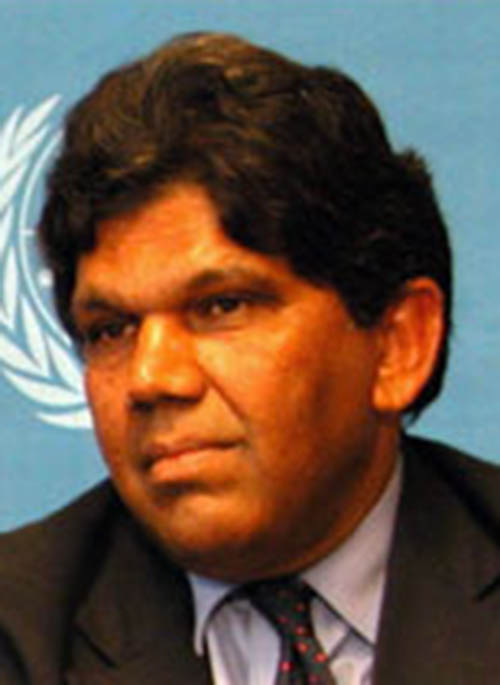COVID-19 and the response to it is changing the world. Problems of climate change, pandemics, poverty, inequality, injustices, inadequate health systems, prejudice, and societal inequities have been revealed in sharper light, even as dynamic uses of new forms of communications, the internet, technology, science, pioneer new pathways to the future. Violence against women and abuses by authoritarian and oppressive governments are on the rise. It is urgent to identify a policy framework for the challenges of the present and post-COVID-19 world.
Without a doubt, that policy framework must be ‘human rights strategies of governance’. Nationally, regionally, and internationally, everyone must implement the norms of the Universal Declaration of Human Rights. It is the indispensable statement of values for the present and the future.
What this means is that the concept of human dignity should be the lode-star. Respect for the intrinsic worth of every human being on a basis of equality, tolerance, and mutual affirmation. It also means implementing for everyone the civil and political as well as the economic, social and cultural rights enumerated in the Universal Declaration. That declaration neatly summed up the challenge: Everyone has the right to a social and international order in which the rights and freedoms stated in the declaration can be realized.
Achieving a human-rights based social and international order requires every country to discuss and draw up an inclusive national vision for all parts of its population, grounded in international human rights norms. The values of the Universal Declaration must become the bedrock of humane and inclusive national values.
Human rights strategies of governance require the emplacement of preventive arrangements against environmental damage, conflicts, pandemics, inequities, and violations of human rights in every country and region, and at the United Nations. Prevention is essential for the maintenance of individual dignity.
Human rights strategies of governance require measures to deal effectively with inequality, poverty, inequities, and injustices. Every country should have in place arrangements to identify and tackle such problems.
Implementing human rights strategies of governance requires a global recommitment to the precept of the Universal Declaration that all human beings are born free and equal in dignity and rights. They are endowed with reason and conscience and should act towards one another in a spirit of brotherhood and sisterhood.
More than at any time in its history, the world needs the inspiration and the strategies of the Universal Declaration of Human Rights.









